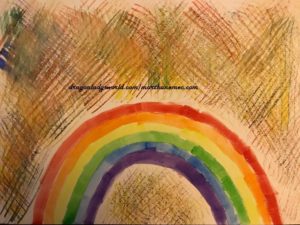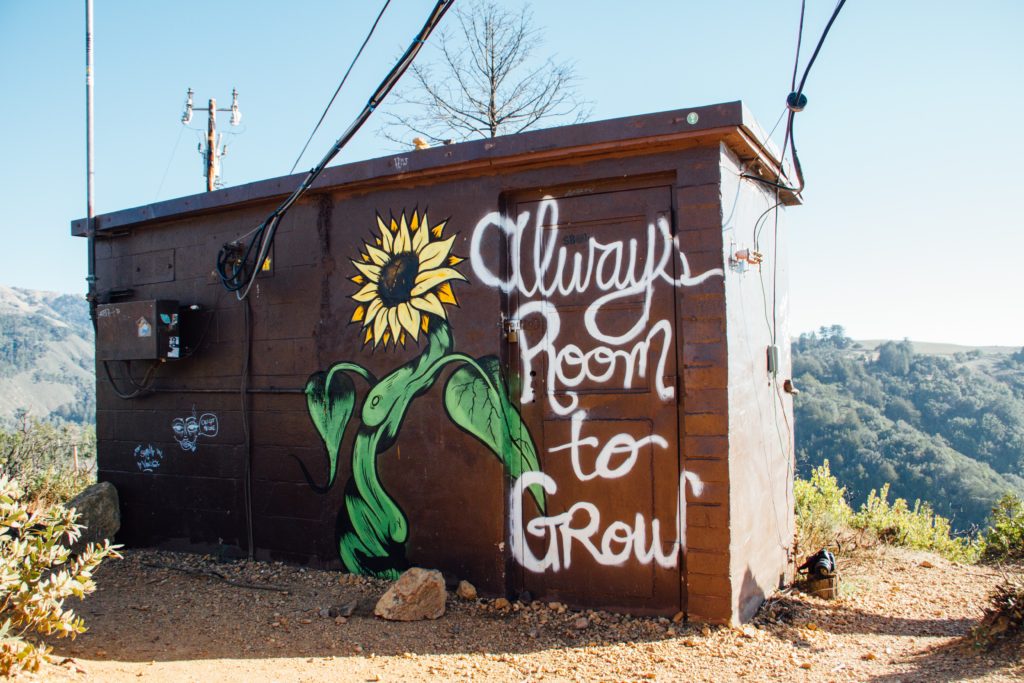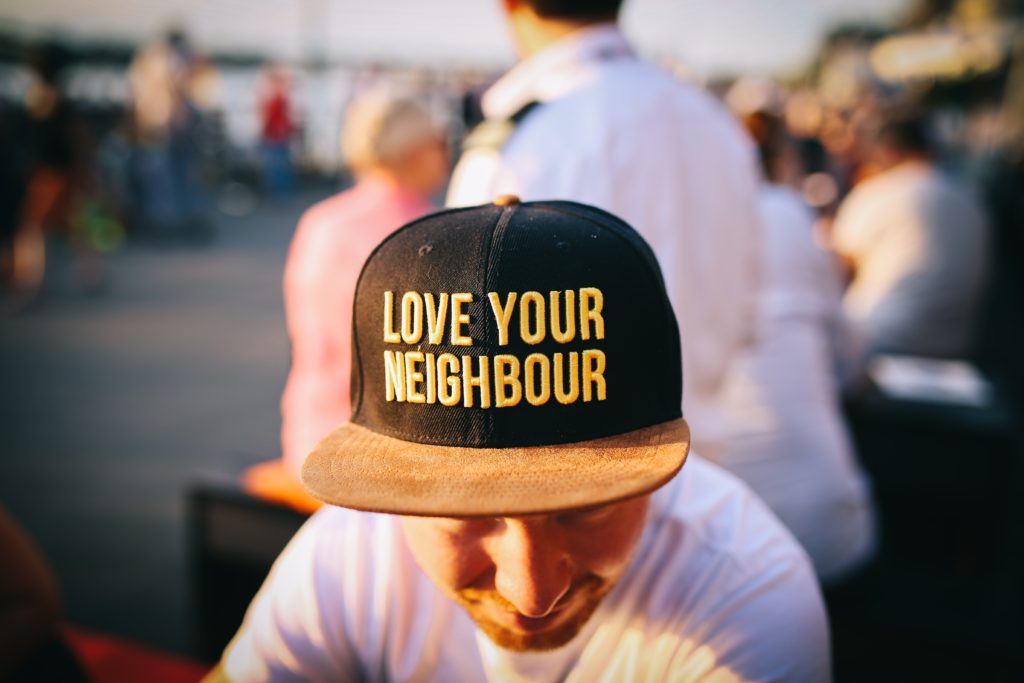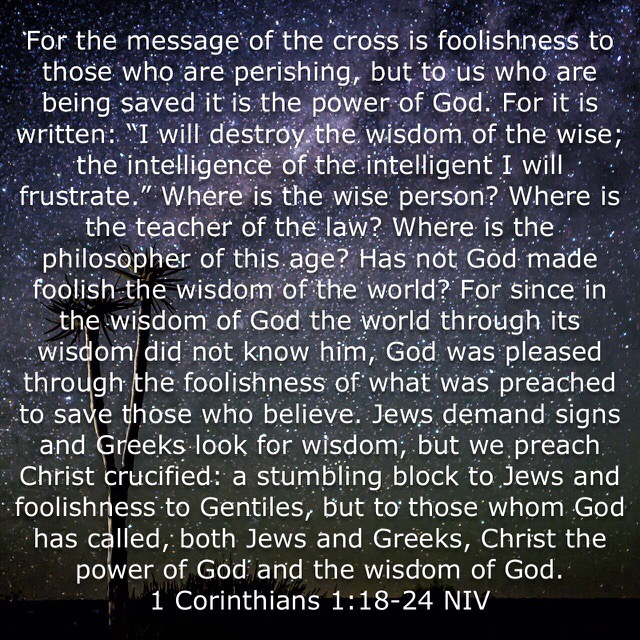Paul Tautges posted an article January 5 on his blog titled What is Addiction?.
He got some things not quite right. In his attempt to show the disease model of addiction is false, he singled out alcohol addiction, or alcoholism, and Alcoholics Anonymous specifically, only he didn’t quite tell the whole story about AA.
It is true that Bill W began his journey to sobriety with the disease model. William D. Silkworth, M.D. had a theory that alcoholics have what can be described as an allergy to alcohol that most people who drink do not have, and shared this theory with Bill W. Bill thought he had the solution now that he knew what his problem was, but self-knowledge was not enough. He was unable to keep from taking that first drink until after he was visited by an old friend who had “found religion.” This friend had been part of the Oxford Group which was a Christian organization. (Summarized from “The Doctor’s Opinion” and “Bill’s Story” in Alcoholics Anonymous, 4th Edition, and Pass it On, Chapter 5.)
Bill W wrote the initial text of the Alcoholics Anonymous “Big Book” and does not reduce alcoholism to simply a physical disease, but understood that “we have been not only mentally and physically ill, we have been spiritually sick. When the spiritual malady is overcome, we straighten out mentally and physically.” (Alcoholics Anonymous, 4th Edition, page 64.) Now I am not going to write an entire response based on AA, but I will point out that it is not a “self help” program, nor is Narcotics Anonymous, or any other 12 Step based groups that help people find a way out of addiction, obsession, and co-dependence. AA developed the 12 Steps that every other 12 Step group is based on. Each of the 12 Steps is done in the order they are because each builds upon the previous step. Step 1 is admission of powerlessness, step 2 is coming to believe in a higher power for restoration to sanity, and step 3 is the “decision to turn our will and our lives over to the care of God, as we understand him.” They have been written such that nonbelievers as well as believers can find sobriety, but while I didn’t go through the remaining steps, they model the process of coming to faith in Jesus, and growing in sanctification. (The 12 Steps of Alcoholics Anonymous) In fact, the AA Big Book quotes the book of James on page 76, “Faith without works is dead.” That marks the beginning of the description of making amends. After all, the alcoholic who wants to be free of his “spiritual malady” must take full responsibility for all of his or her actions that caused harm to others, and not hide behind the drink. It is not a program of “cheap grace” or “easy believism.”
One last thing before I move on. From page 60 of the AA Big Book:
“Our description of the alcoholic, the chapter to the agnostic, and our personal adventures before and after make clear three pertinent ideas:
(a) That we were alcoholic and could not manage our own lives.
(b) That probably no human power could have relieved our alcoholism.
(c) That God could and would if he were sought.”
And Step 12, “Having had a spiritual awakening as a result of these steps, we tried to carry this message to alcoholics, and to practice these principles in all our affairs.”
Praise be to the God and Father of our Lord Jesus Christ, the Father of compassion and the God of all comfort, who comforts us in all our troubles, so that we can comfort those in any trouble with the comfort we ourselves receive from God. 2 Corinthians 1:3-4
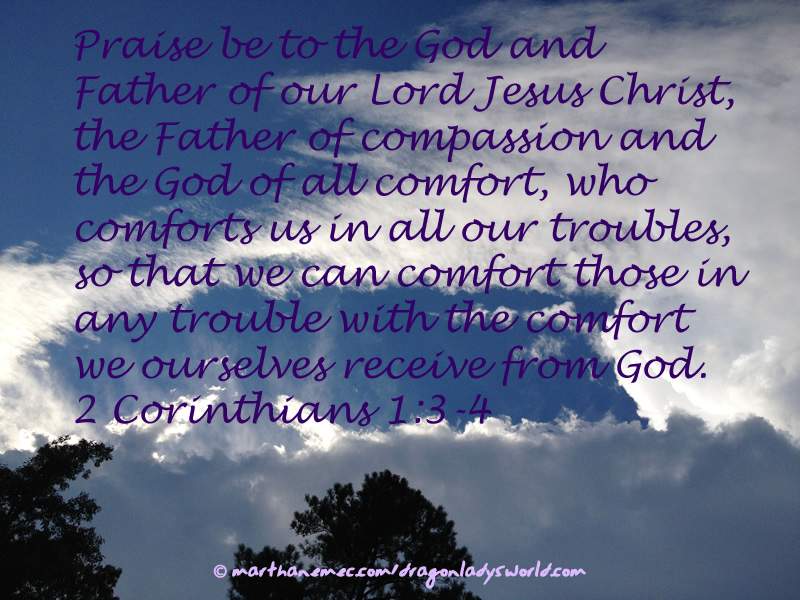
Paul quotes from Ed Welch’s book, Addictions: A Banquet in the Grave, “The Bible says that we first choose our addictions, and only then do our addictions choose us.” I own a few of Ed’s books, and have read 2, and found them very helpful. But that statement is not entirely true. The reason I say that is because I became an addict when I was 8 years old, and it was through absolutely no choice I made. I became an addict at my first dental appointment. Our family dentist gave me nitrous oxide (laughing gas) before he began to work on my cavities. I was not given a choice to go to the dentist. I was not given a choice whether or not to have laughing gas. But from that point on, I looked forward to going to the dentist because I loved how the laughing gas made me feel. The hallucinations didn’t even bother me.
I was 8 years old. I didn’t really know what addiction was even though I knew one of my uncles was an alcoholic. But I didn’t understand what that meant except that it involved drinking, and that was wrong because the Church Covenant hanging prominently on the front wall of the church auditorium said it was. I knew absolutely nothing about drugs. I also had a very limited concept of sin which was really just a matter of following rules so as not to get in trouble. Despite being a deacon’s kid and accepting religious teaching without question, at that point, I had no tangible concept of God. Even after coming to know Jesus at 12, I had a hard time with seeking out things that made me feel good because of a complex mixture of rigid legalism, outright false teaching, abuse, and a good dose of genetic disposition. That combination resulted in a “Don’t talk. Don’t trust. Don’t feel.” approach to life while seeking anything that would bring relief from my inner turmoil. (I did finally find that peace in Jesus, but it took me until I was in my 40s, but it took a lot of “environmental” change.)
Last semester I took a course called Substance Abuse Overview. I felt we only scratched the surface, but it is just a freshman level overview. It isn’t designed to be that in-depth. However, between it and a general psychology course, I learned quite a bit about the physiological affects of drugs in the brain. I’m going to post portions of a paper I wrote where I compared the addictiveness of marijuana to alcohol and opiates.
Dependence is defined as a physiological dependence on a drug that is marked by withdrawal symptoms when the drug is no longer taken. Addiction can be defined as both physiological and psychological dependence resulting in compulsive use of the substance. (Van Wormer and Davis, 2014). Dr. Kevin McCauley looked at the neurological factors that play a role in dependence and addiction. The frontal cortex is where our conscious selves reside with the reasoning and logic that govern our morals, spirituality, socializing, etc. His research has shown that drugs do not affect that portion of our brains, but operate on the midbrain, which is the survival portion of the brain that contains the instincts to eat, kill, and have sex. The midbrain gets sensory information before the frontal cortex. (Fifth Direction, 2015). The anterior cingulate cortex (ACC) is thought to modulate and dampen the amygdala (which is the portion of the midbrain that is the center of the base survival emotions) as it communicates with the frontal lobe. (Rhodes College, 2012). In the Olds rodent experiments, they used cocaine to discover two spots that trigger addiction in the midbrain, the ventral tegmentum and the nucleus accumbens. When the drug was administered in either of those two locations, the mice would do only the task(s) that would give them the drug. The drug goes to the top of the survival hierarchy, and they will do it to the point of death. (Fifth Direction, 2015).
…
Once THC is in the bloodstream, it is carried throughout the body, to each organ including the brain. (Yacoubian, 2007). Its greatest influence on addiction is due to its affect in the mesolimbic system (rewards area) of the brain much like other drugs. (Miller and Oberbarnschiedt, 2017). Once in the brain, the THC attaches to cannabinoid receptors on nerve cells (Yacoubian, 2007) due to its similarity in structure to an endogenous cannabinoid called anandamide. (NIDA, 2017). It is believed to act on the receptors much like endogenous opioids (Miller and Oberbarnschiedt, 2017). An endogenous opioid is a substance like an opiate that the body produces, such as endorphins. (endogenous opioid, n.d.) The endogenous cannabinoids, also called endocannabinoids, are produced by the body as well. The endocannabinoid system is responsible for the synthesis and degradation of endocannabinoids. They are named such due their initial identification as the neurotransmitters that activated the same receptors as the cannabinoids in marijuana, of which THC belongs. Endocannabinoid synthesis acts as “on demand” synthesis because they are not synthesized in advance and stored in vesicles the way other neuromodulators are. (Mackie, 2008). Because many of the receptors are located in the area of the brain that control pleasure (the midbrain), THC stimulates the reward system to release dopamine (Yacoubian, 2017), but at much higher levels than normal. (NIDA, 2017). THC also binds to receptors in the cerebellum and basal ganglia which affects coordination and balance. (Yacoubian, 2007). Additionally, it disrupts the hippocampus and orbitofrontal cortex which are areas that are associated with memory formation and attention. (NIDA, 2017).
…
Most drugs increase the level of dopamine in the rewards center of the brain (Alila Medical Media, 2014), and alcohol is no exception. It interacts with the endogenous mu opioid in the brain similarly to opiates. Alcohol also increases gamma-aminobutyric acid (GABA) activity which is instrumental in the feelings of euphoria, disinhibition, anxiety reduction, and sedation with drinking. (Miller and Carroll, 2006). Interference with the neurotransmitter glutamate is believed to be a cause of “black outs,” or not being able to remember what a person did after drinking heavily. (NIAAA, 2015). Alcohol lowers the glutamate activity in the brain particularly in the N-methyl-D-aspartate (NMDA) receptor. (Gilpin and Koob, 2008). Alcohol causes increased levels of serotonin which helps regulate emotion (NIAAA, 2015), but the increase is temporary, and results in later serotonin depletion. (Gilpin and Koob, 2008). The brain adapts to the disruption of the balance, but these adaptations lead to alcohol tolerance and dependence, which result in withdrawal symptoms. Abstinence over time reverses many of the negative cognitive effects from heavy drinking. (NIAAA, 2015).
…
Each of the opiates, once they reach the brain from the bloodstream, attach to mu opioid receptors on opiate-sensitive neurons. Similar to THC in marijuana, opiates operate heavily in the mesolimbic (midbrain) reward center which produces more dopamine than normal. This increases the desire for the drug even in the absence of pain. With increased usage and dosage, the brain functioning is altered so that the brain functions normally when the drugs are present, but abnormally in their absence similarly to the brain’s compensation for the disruption caused by alcohol leading to tolerance and dependence. (Kosten and George, 2002).
Opiate dependence and some withdrawal occur from changes to the locus coeruleus (LC) which is located at the base of the brain. It produces a chemical called noradrenaline (NA) which when distributed stimulates many of the activities of being awake. Opiate molecules in the LC suppress NA, producing the intoxicating effects of opiates. After times of repeated presence of opiates, the LC will compensate by increasing production of NA. When the opiates are no longer in the system, the LC will continue to overproduce NA resulting in withdrawal symptoms such as jitters, anxiety, muscle cramps, and diarrhea. This is in addition to the disruptive activity in the midbrain. (Kosten and George, 2002).
With that much neurobiological interruption, the claim cannot be made that there is no biological factor to addiction and that it is purely a sin problem. The neurobiological affects strongly affect the psychological functions. The brain is a very complex organ, and it stands to reason that it would be since it is the central core of how the rest of the body functions together and how information received via our 5 senses are processed. Sin is a result of conscious choice. Not all addicts are addicted because of a conscious choice they made. Not all people who use or abuse drugs or alcohol become addicted. Regardless, addiction won’t be thrown off just because someone tells them they are just being sinful. To reduce addiction exclusively to sin can serve to burden an addict or alcoholic with shame whenever he or she is tempted to drink or use because that temptation has a biological component to it.
———————————————————————————————————————————————-
References
Alila Medical Media. (2014, September 10). Mechanism of Drug Addiction in the Brain Animation [Video file]. Retrieved from https://www.youtube.com/watch?v=NxHNxmJv2bQ
endogenous opioid. (n.d.) Mosby’s Medical Dictionary, 8th edition. (2009). Retrieved from https://medical-dictionary.thefreedictionary.com/endogenous+opioid
Fifth Direction. (2015, June 25). Is Addiction Really a Disease? Dr. Kevin McCauley [Video file]. Retrieved from https://www.youtube.com/watch?v=b2emgrRoT2c
Gilpin, N. W., & Koob, G. F. (2008). Neurobiology of Alcohol Dependence: Focus on Motivational Mechanisms. Alcohol Research & Health, 31(3), 185–195.
Kosten, T. R., & George, T. P. (2002). The Neurobiology of Opioid Dependence: Implications for Treatment. Science & Practice Perspectives, 1(1), 13–20.
Mackie, K. (2008), Cannabinoid Receptors: Where They are and What They do. Journal of Neuroendocrinology, 20: 10–14. doi:10.1111/j.1365-2826.2008.01671.x
Miller, N. S., & Oberbarnschiedt, T. (2017). Current medical and legal status for smoked “medical marijuana” and addiction. Psychiatric Annals, 47(6), 335-340. doi:http://dx.doi.org/10.3928/00485713-20170424-01
NIAAA. (2015, October). Beyond Hangovers: understanding alcohol’s impact on your health. NIH Publication No. 15-7604. Retrieved from https://pubs.niaaa.nih.gov/publications/Hangovers/beyondHangovers.pdf
NIDA. (2017, August 1). Marijuana. Retrieved from https://www.drugabuse.gov/publications/drugfacts/marijuana
Rhodes College. (2012, October 9). Steven Schlozman – “How to Inadvertently Learn Some Neuroscience…” [Video file]. Retrieved from https://www.youtube.com/watch?v=sM2oUPgymJ8&t=1s
Van Wormer, K., & Davis, D. (2014). Addiction Treatment: A Strengths Perspective (4th Ed.). Boston, MA: Cengage Learning.
Yacoubian, G.S. (2007). Assessing the relationship between marijuana availability and marijuana use: A legal and sociological comparison between the United States and the Netherlands. Journal of Alcohol and Drug Education, 51(4), 17-34. Retrieved from https://login.proxy033.nclive.org/login?url=https://search.proquest.com/docview/217439225?accountid=9994
